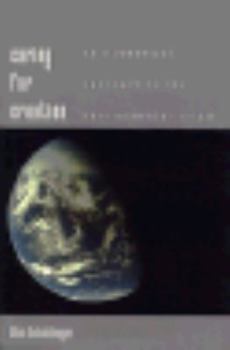Caring for Creation: An Ecumenical Approach to the Environmental Crisis
Select Format
Select Condition 
Book Overview
Many environmentalists believe that religion has been a major contributor to our ecological crisis, for Judeo-Christians have been taught that they have dominion over the earth and so do not consider... This description may be from another edition of this product.
Format:Hardcover
Language:English
ISBN:0300058179
ISBN13:9780300058178
Release Date:April 1994
Publisher:Yale University Press
Length:285 Pages
Weight:1.65 lbs.
Dimensions:1.1" x 6.5" x 9.6"
Customer Reviews
1 rating
So far so good; God's not Dead, he's Green
Published by Thriftbooks.com User , 16 years ago
I'm just starting the book. I'm starting it holding William Greider's The Soul of Capitalism as an important standard, Daniel Quinn's Ishmael, Matthew Fox's Original Blessing, and Jay Haley's Uncommon Therapy as basic points of reference. Eliot Chapple's The Biological Foundations of Individuality and Culture is another of my foundational books. Oelschlager is starting out by referring to the various forms of Judeo-Christian religions' responsibility for the ecological crisis. He is starting to argue that this focus is not the only possible view for this or any religious tradition, and that it is imperative to revise this perspective to address the question of sustainability because of the underlying nature of the religion in the culture. As Matthew Fox was ultimately forced to leave the Catholic Dominican order for his life-affirming revisions of Church Orthodoxy, I would suggest, Oelschlager is suggesting that such a new view of religion is necessary to guide the urgent changes in society. As Greider has explored the financial systems' control panel, and Haley describes the genius of Milton Erickson's psychotherapy, Oelschlager appears to be developing a philosophical analysis of religion's sociocultural functional role extending to the experiential political economy in all our lives, large, small, and personal. More on this later.





